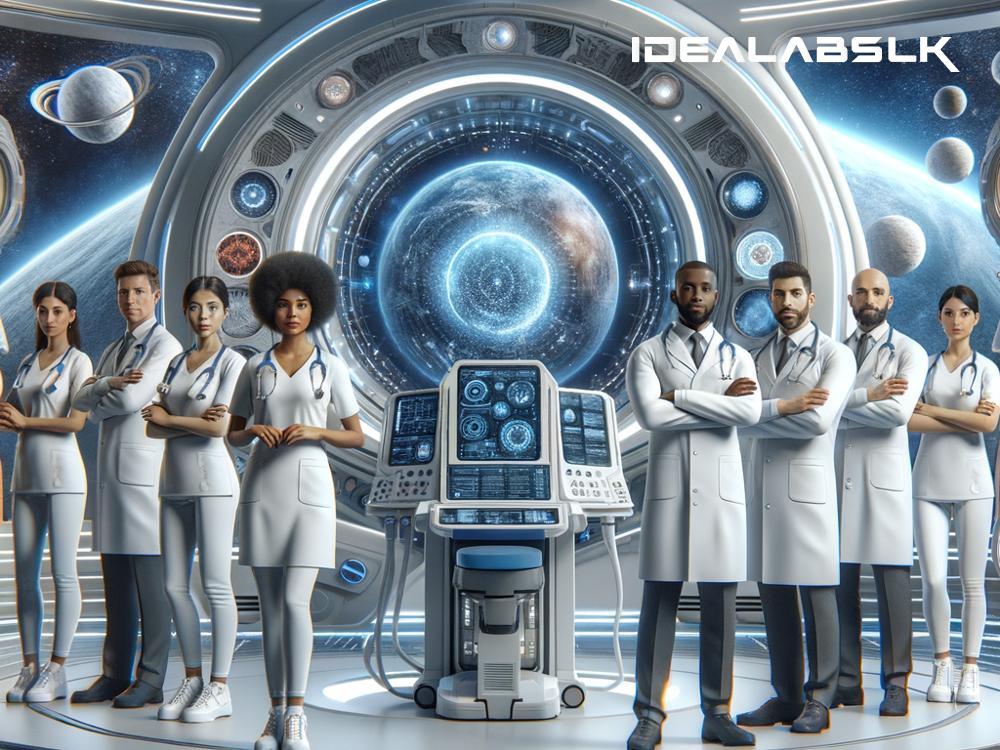Title: "Exploring New Frontiers: How Space Tech is Revolutionizing Healthcare on Earth"
Introduction: Picture this: technologies developed for exploring the vast and uncharted realms of outer space are now shaping the future of healthcare right here on Earth. It's not a scene from a sci-fi movie; it's reality. As we push the boundaries of space exploration, the innovations designed for astronauts in the cosmos are finding their way into hospitals, clinics, and homes, transforming healthcare in ways we could have hardly imagined. Let's dive into how space technology is making healthcare more advanced and accessible by 2024.
Portable Health Monitoring: From Astronauts to Earthlings
Astronauts in space need continuous monitoring, which has led to the development of compact and efficient health monitoring systems. These systems can track vital signs and detect health issues early. Fast forward to 2024, these portable devices are now commonly used on Earth, empowering people to monitor their health seamlessly. Whether it's a smartwatch tracking your heartbeat or a wearable patch measuring your glucose levels, space technology has made health monitoring a part of our daily lives, helping prevent diseases and manage chronic conditions more effectively.
Telehealth and Remote Diagnoses: Bridging the Cosmic Gap
Communication technology developed for space missions, designed to transmit data across vast distances with minimal delay, is revolutionizing telehealth. By 2024, remote areas on Earth are no longer out of reach for quality healthcare, thanks to satellite-based internet and communication systems. Patients in rural or remote locations can consult with specialists via video calls, receive diagnoses, and manage treatments without the need to travel. This space-inspired connectivity is breaking down geographical barriers, making healthcare more accessible to everyone, everywhere.
Robotics and Surgical Precision: From Space Stations to Operating Rooms
Robotic technology, initially developed to repair spacecrafts or conduct experiments in space, is now a game-changer in surgery. These robotic systems offer remarkable precision, reduced tremors, and the ability to perform complex procedures through minimal incisions. As of 2024, surgeries assisted by space-tech-inspired robots are not only safer but also yield quicker recovery times and less scarring. This advancement is particularly groundbreaking in fields like neurosurgery and cardiac surgery, where precision is crucial.
3D Printing for Prosthetics and Organ Transplants: The Infinite Possibilities
Space missions have utilized 3D printing for creating tools and parts in zero-gravity conditions. On Earth, this technology is transforming the production of customized prosthetics and is on the brink of revolutionizing organ transplants. In 2024, affordable, tailor-made prosthetic limbs produced using 3D printing are enhancing the quality of life for amputees. Furthermore, researchers are advancing towards bioprinting organs, a breakthrough that could potentially end organ donor shortages in the future.
Nanotechnology for Drug Delivery: Targeting Illness at the Molecular Level
The application of nanotechnology in space exploration, such as for improving the durability of spacecraft materials, is finding vital uses in healthcare. By 2024, nanotechnology is enabling the development of targeted drug delivery systems, where tiny, engineered particles transport medication directly to the affected cells or tissues. This method minimizes side effects and increases the efficacy of treatments for various diseases, including cancer. It's a promising glimpse into a future where treatments are not only personalized but also more humane and effective.
Conclusion:
The journey into space, filled with challenges and unknowns, has led to technological advancements that are profoundly impacting healthcare on Earth. By 2024, the integration of space technology into healthcare is not just a testament to human ingenuity; it's a commitment to improving lives. From enabling more precise surgeries to making healthcare accessible in the most remote corners of the planet, space innovations are ensuring that the future of healthcare is brighter and more inclusive. As we continue to explore the cosmos, the potential for further contributions to medicine and health is limitless. The boundary between space and healthcare is blurring, and in this unity, lies the hope for a healthier planet.

